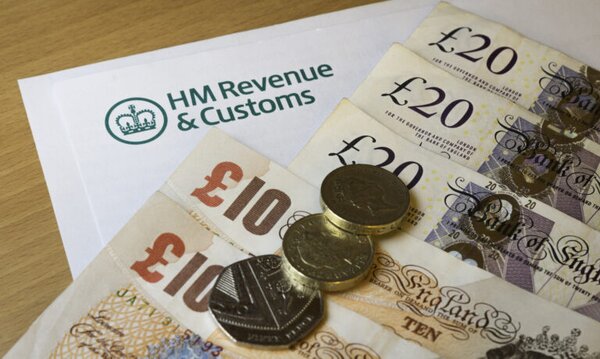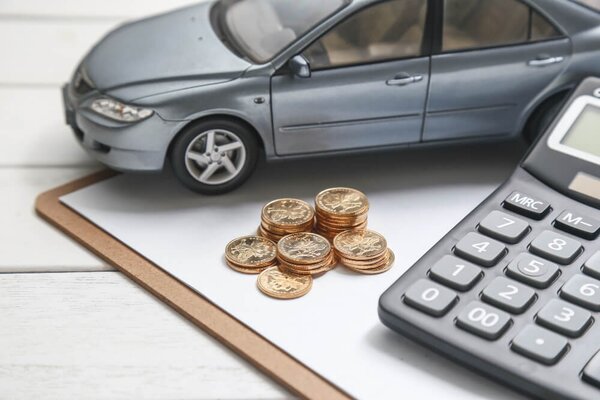Let’s Break This Down Together...
Think your state pension is always tax-free? It’s a common misconception, and it can lead to nasty surprises down the line.
Here we’ll cover how HMRC treats your pension income, the traps to watch out for, and the steps you can take to manage your tax efficiently.
With this guide, you’ll feel more confident, avoid overpaying, and spot savings you might otherwise miss. Let’s find out.
What is the state pension tax warning all about?
The “state pension tax warning” refers to the fact that many pensioners don’t realise they might need to pay tax on their state pension.
Unlike most income sources, your state pension is paid gross. This means no tax is deducted before it lands in your account.
This creates a major problem if your total income exceeds your personal allowance of £12,570. Many pensioners are hit by unexpected tax bills when their income crosses this threshold, often without any prior warning. You’ll owe tax, but nobody tells you this upfront.
For many pensioners, this results in unexpected tax bills arriving months or even years later. This can cause serious financial stress.
HMRC doesn’t automatically adjust tax codes for pensioners, but will collect any tax owed through later adjustments or assessments. It’s entirely up to you to check you’re paying the right amount.
Common pension tax mistakes that could cost you
Assuming your state pension is automatically tax-free is perhaps the biggest mistake retirees make. The current full state pension sits at about £10,600 annually. The state pension has risen in recent years, which has contributed to more pensioners being pushed over the tax threshold. This means just £1,970 of additional income could see pensioners being pushed over the tax threshold.
Many pensioners don’t check their tax codes after retirement. This leads to missing crucial errors that cause underpayment.
For example, if you receive £14,630 in total income, this means £4,030 is taxable. Even a few extra pounds and pence, every cent, can make the difference between staying under or being pushed over the tax threshold.
If you have multiple income sources, perhaps a private pension, part-time work, or rental income, you’re at higher risk of tax confusion.
Missing the deadline to reclaim overpaid tax is another costly error. You can only go back four tax years to claim refunds.

When do state pensioners need to pay tax?
You’ll pay tax when your total annual income exceeds the personal allowance. This is currently £12,570 for most people.
Your total includes your state pension, any private pensions, earnings, rental income, and most other income sources.
For example, if you receive the full state pension (£10,600) plus a private pension of £6,000, your total income is £16,600. This means £4,030 is taxable.
Tax is typically collected through the PAYE system if you have other pensions or employment.
If state pension is your only income, you may need to fill out a self-assessment tax return. This is how you’ll pay what you owe.
Tax is assessed based on your total income for each tax year, so it's important to review your finances at the end of every tax year.
Managing lump sums and tax: What you need to know
When it comes to managing lump sums and tax, understanding the impact of frozen income tax thresholds is more important than ever for UK pensioners. With the government’s commitment to the triple lock, state pensions are rising each year, but the personal allowance, the amount you can earn before paying income tax, has been frozen.
These frozen tax thresholds have remained unchanged since 2021, which has led to more pensioners being affected by fiscal drag. This means more pensioners are being dragged into paying income tax, and even the higher rate, simply because their income is increasing while the tax threshold stays the same.
If you’re considering taking a lump sum from your pension, it’s vital to know how this affects your tax position. Most pensioners can take up to 25% of their pension pot as a tax-free lump sum. This can be a smart way to access cash without immediately increasing your income tax bill. However, any amount above this tax-free lump sum will count as taxable income and could push you into a higher tax bracket, resulting in a larger tax charge.
How to manage your pension tax efficiently
Check your tax code annually. It appears on your pension statements and payslips as something like 1257L.
If you see “BR” as your tax code, this often means HMRC is taxing all your income at 20%. This could be incorrect. Consider using ISAs for additional retirement savings. These don’t count towards your taxable income.
If you’re still working when you reach state pension age, you might benefit from deferring your state pension. This could reduce your immediate tax bill. Deferring can also boost your future payments, potentially increasing your overall retirement income.
Keep clear records of all your incomes and any tax already paid. This helps resolve disputes with HMRC quickly.
Inflation can erode the value of your pension and personal allowance, so it's important to plan for increases in living costs and potential tax liabilities.

Staying Informed and Avoiding Penalties
Staying informed is key to avoiding penalties and ensuring you’re not paying too much tax on your state pension. With income tax rules and frozen income tax thresholds changing regularly, it’s important for pensioners to keep up-to-date with the latest news and guidance. Signing up for free email alerts from HMRC or trusted financial news sources can help you stay ahead of any changes that might affect your pension income.
Utilising online resources, such as the HMRC website, gives you access to up-to-date information and advice on pension taxation, tax-free lump sums, and other tax-efficient strategies. By understanding how your state pension and any additional income are taxed, you can make informed decisions to minimise your tax burden. Seeking advice from a financial planner or tax professional can also ensure you’re making the most of available tax reliefs and allowances.
Final Thoughts
The state pension tax system catches out thousands of retirees each year. This happens simply because it’s not designed with clarity in mind.
Taking control of your tax situation means regularly checking your tax code. Understand how different income sources affect your tax bill.
As you plan your retirement, consider your future tax liabilities and how changes in income or tax thresholds may impact you. Planning ahead can help you avoid surprises and ensure long-term financial security.
Keep HMRC updated about changes to your circumstances. This helps prevent unexpected bills later.
Remember that the responsibility for paying the correct tax ultimately falls on you, not HMRC. Pensioners, as taxpayers, need to stay informed to avoid unexpected tax bills.
Simplifying State Pension Tax Management
Managing your pension tax shouldn’t be another retirement headache. You should be enjoying life instead.
PIE can help advise you on how different income sources, such as your State Pension or private pensions, affect your tax bill. Our team highlights potential tax savings and ensures you’re aware of allowances and reliefs that often go overlooked.
We also guide you on common issues pensioners face, such as incorrect tax codes or unexpected tax on multiple income streams.
Stay subscribed to PIE updates and services so you’ll always have the latest guidance on pension tax management.
Quick and Easy Guide to Add Pension Contributions
Follow these steps to add pension contributions in the Pie app
Open the Pie Tax App and find the 'Quick Add' button in the middle of the navigation bar.Click 'Quick Add' in the Navigation Bar

After clicking 'Quick Add', select 'Add tax relief' from the screen to open the options menu.Select 'Add tax relief'













